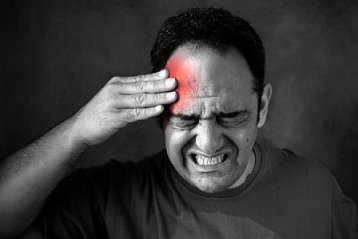Dehydration and Pain
Your Body's Plea for Water
by Nancy Hearn, CNC
Note: As an Amazon Associate I earn from qualifying purchases.
The link between dehydration and pain in the body is not well known, even though clinical studies have proven it.
We can safely assume that if an injury or an infection is not the obvious cause of pain, then the most likely cause is water shortage in that area of the body, according to Dr. Batmanghelidj, author of Your Body’s Many Cried for Water.
Some of the more common pains of dehydration include headaches, heartburn, gastrointestinal pain, back pain, joint pain, fibromyalgic pain, and leg pain on walking.
The Pain Sensation
According to Batmanghelidj, there are two primary aspects to the pain sensation. One is registered by the specific area of the body where pain is felt, and the other is registered by the brain and central nervous system.
In the early onset of symptoms, the pain can often be relieved with natural anti-inflammatory supplements such as turmeric and bromelain or with medications such as aspirin, ibuprofen and acetaminophen.
However, after a certain threshold of pain, the central nervous system takes over and these are usually ineffective until hydration is achieved.
Acid-Alkaline Balance
What is most interesting to me is that the pain is often a result of changes in the acid-alkaline balance of the cells in the affected area.
An acidic environment in the body irritates certain nerve endings. When this happens, the brain is alerted to the chemical change which then manifests in our conscious mind as pain.
In other words, acidity in specific areas of the body causes a pain response.
If the condition is not corrected, the acid could potentially burn and “eat into the cell membranes and inner structures of the cells in the area,” writes Batmangelidj.
Healthy Cells are Alkaline
Normally, when blood contains ample water and it flows freely throughout the circulatory system, some of the water goes into the cells and washes the acidic metabolic waste out, restoring the natural slightly alkaline pH inside the cell.
When adequate water is not available to flush the acidic waste out of the area, the local nerves sense the chemical change and send a message to the brain. Initially, the brain will suppress the pain sensation somewhat to allow the body to correct the problem.
However, if we don’t recognize the symptom (such as a dull headache or gastrointestinal discomfort) for what it is and start to re-hydrate our body, the intensity of pain increases and the condition worsens.
The optimal pH of the interior of the cells in the body is slightly alkaline, about pH 7.4. This is the pH state that best supports the function of enzyme activity inside the cells.
This is another key reason why I believe water, oxygen and enzymes are the most important nutrients in the body.
Drinking enough water daily is necessary to provide the adequate flow of water in and out of the cells to keep the cells healthy
Summary of Dehydration and Pain
Most people unfortunately do not understand the connection between dehydration and pain.
Suffice it to say that if you are experiencing any type of pain (especially heartburn, gastrointestinal pain, back pain, joint pain, headaches, muscle pain, and leg pain), it would be wise to at least get started on a program of re-hydrating your body.
If you have been chronically dehydrated for years, it can take weeks or even months to fully hydrate your body. Thus, gradually build your water intake so that your kidneys will adjust to the change, and consult with a medical doctor as needed.
Drinking water is inexpensive and easy to do. And it does not have the bad side effects of common pain relievers and other medications.
References
F. Batmanghelidj, M.D.; Your Body's Many Cries for Water; 2008.
Murad.com; The Link Between Dehydration and Pain; 2014.
Further reading . . .
Health Benefits of Drinking Water - The Healthy Cell Concept
Return from Dehydration and Pain to Dehydration Effects of Water Loss in the Human Body
If you would like to reproduce or republish this article or any other article on this site, feel free to do so but please include a reference or link to the article at WaterBenefitsHealth.com.
Sign Up for Our Monthly
Newsletter
Visitor Comments
"This was the best and most straight forward info on the net yet. I asked a question and got an answer that made sense. Thank you so much!" - Linderlinder
FINALLY!!! I have been wondering about this for years with no 'solid' answer. This is exactly what I've been wanting to know! Thank you for this share..." by Andy
"Thank you for the information, Nancy. I appreciate it. Your article and findings are very helpful, referring to dehydration." - Carolyn
"Lemon water is one drink both my wife and I can't drink. It upsets our stomachs. We are in our sixties and in very good health—well, better health now that we drink about 2 liters plus of water each day. It has made so much difference to our digestive systems and recovery every day. Thank you for your website and effort." - Rod



